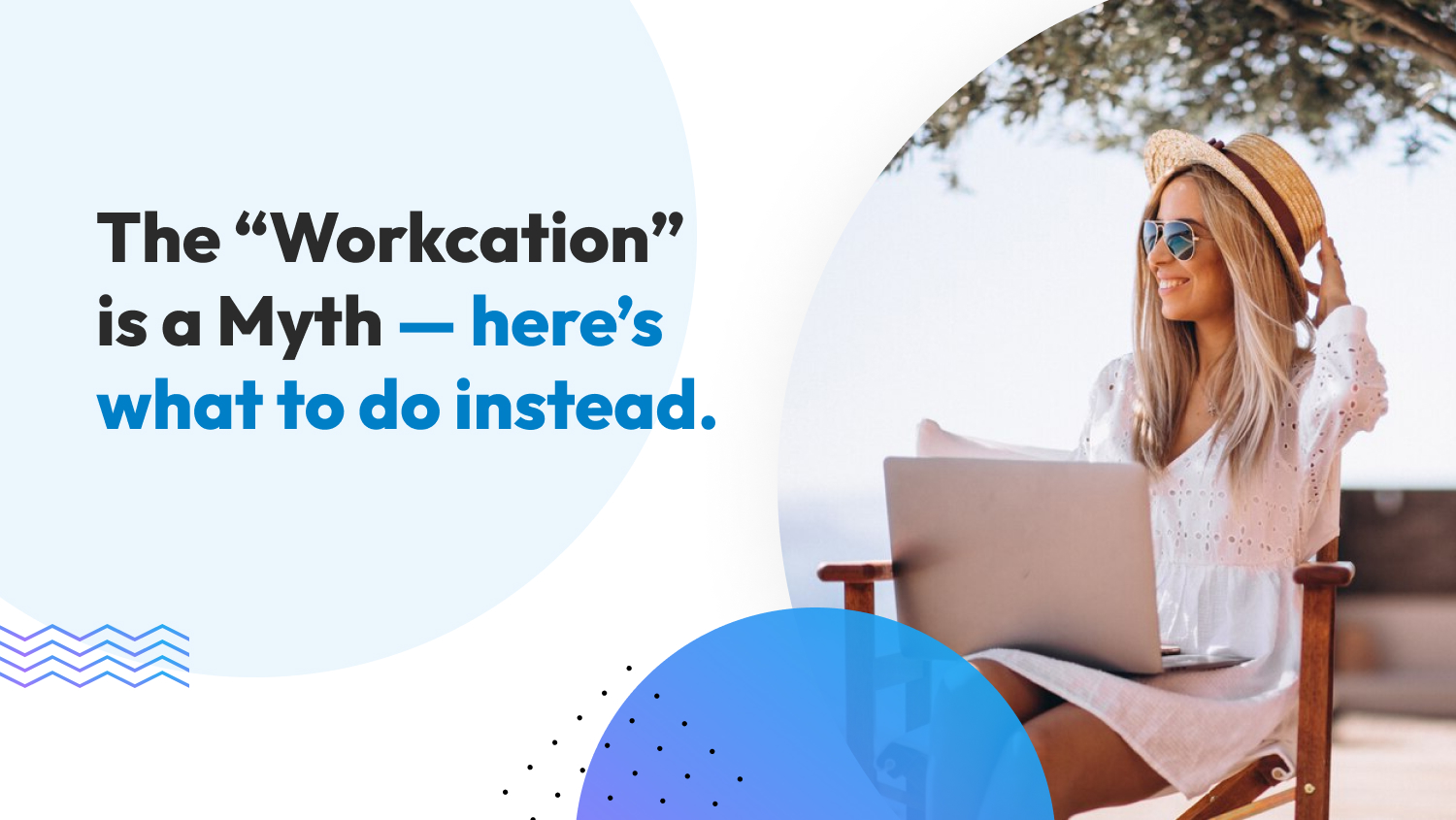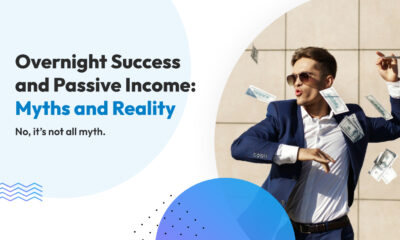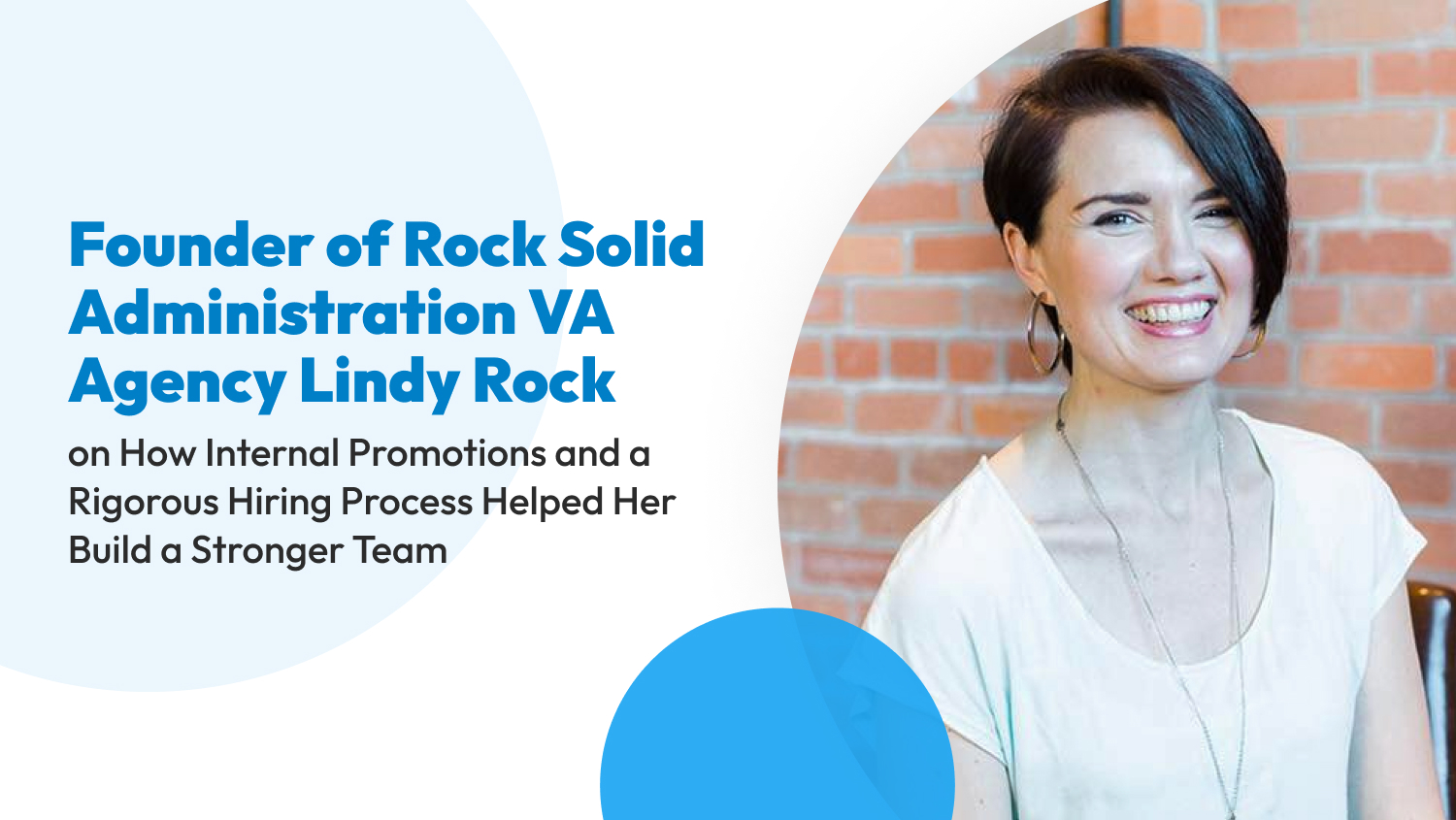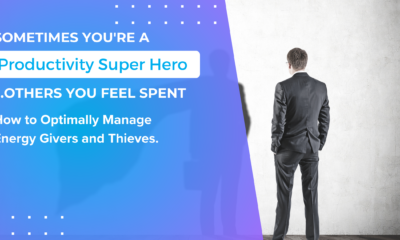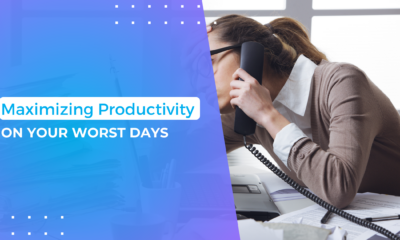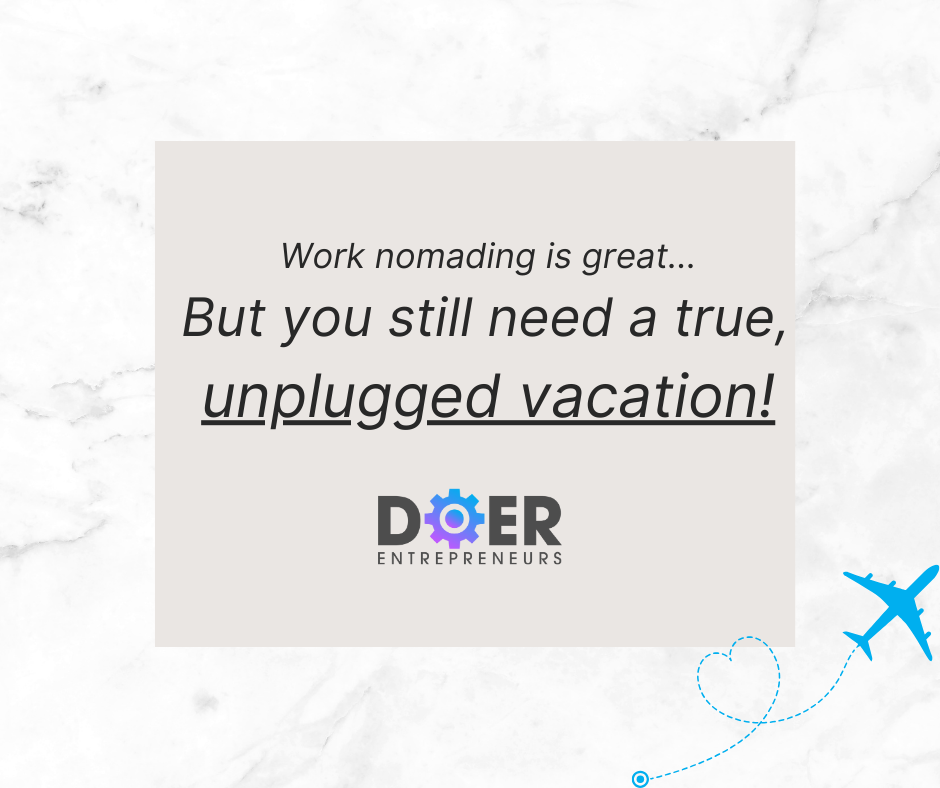When I first quit my full-time job as my business had started to grow, I remember sitting on the couch watching TV and working on a translation job for a client thinking “Wow, this is the life! I’m making money in my pajamas, while watching TV — I can’t believe it!” Aww start-up Jenae was so cute and naïve.
OK, not THAT naïve, it was an is amazing and I am still grateful for such flexibility. This was obviously way before I was worried about my ROTI (return on time investment), gross revenue vs. income and lots more that I came to learn about as I grew as a business owner (spoiler alert: lounging on the couch does not improve productivity) but one thing that many business owners struggle with is this:
What happens if you actually can run your business anywhere anytime? Is it actually a good thing?
Well, I’d argue it’s an amazing thing, but one that can turn toxic faster than you think.
Now, don’t get me wrong, I can’t imagine running any other type of business. This flexibility supports my lifestyle while still allowing me to show up for my business and my clients but…
There is a toxic side to work flexibility.
The workcation is a combination of “work” and “vacation” and this seemingly “cool” concept can actually be really dangerous. At first glance, it seems to imply that you’ll have the best of two worlds:
- You’ll be rested from your vacation AND
- You’ll have made money and supported your clients from your work.
That is the workcation myth.
In fact, it’s often the worst of two worlds:
- You’re not rested because you didn’t actually take a vacation AND
- You were less productive at work than if you had just stayed home.
This is not to say that I never travel and work, but I don’t consider it a vacation. The solution is to be realistic and intentional. I have four settings or modes when it comes to my time that allow me to get the most out of the flexibility while preventing the toxicity that can accompany it.
Four settings:
Optimal Work: This is my baseline, work from home (or office) in my regular routine and everything is set up for optimal work output (while maintaining my work-life balance, of course).
Work Nomading: This means I’m traveling but plan to work as much as I would at home or close to it. I don’t expect to feel “rested” after this type of trip since I’ll be working. This is great for being able to see and experience more places (or visiting people you would not otherwise be able to) in a shorter amount of time while still running your business. I also know that I can’t be nearly as productive as I am in my “optimal work” setting when I’m nomading so I adjust my schedule and expectations accordingly.
Plugged Vacation: This means that vacation is the priority but it’s not unplugged and I do intend to work some. I still batch and do as much as I possibly can beforehand so that if anything unexpected happens, I can prioritize the vacation and not work. For example, I got extremely sick on my recent plugged vacation to Ghana to meet my new extended in-laws but since I was prioritizing my time with them anyway, this didn’t really hurt my work much, which was largely optional, and I still got to see almost everyone we’d planned to see.
(Unplugged) Vacation: A vacation to me means that my mind is fully disconnected from work. I won’t even check email during a vacation and my goal is to completely turn the work off. I added “unplugged” in parentheses because it really shouldn’t even need to be stated but I know how hard it is to unplug so I wanted to make a point to include it.
If you want to travel 10 months out of the year and are not independently wealthy or have a massive passive income stream, you are likely looking at work nomading for most of that time, but you still also need a vacation, which is not the same thing.
Let me say that one more time: Even if you are largely a work nomad, YOU STILL NEED A TRUE VACATION.
There’s absolutely nothing wrong with work nomading or plugged vacations as long as we are realistic and intentional about the setting we are using at any given time and we do not ignore the need for true disconnection.
Because so many of us can work from anywhere, I find many of my clients when they first come to me have stopped giving themselves permission to take that unplugged vacation and truly disconnect. We think that just having our phone next to us with the email notifications on isn’t enough to undo our vacation, but it actually can be.
I’d love to hear from you about your own settings/modes.
Do you use the ones above? Have you been caught up in the toxic workcation before?
